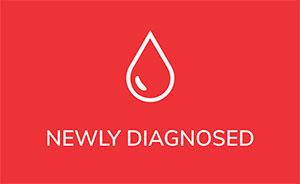Medically reviewed by Dr. Brian Koffman
The Bottom Line:
Taking vitamin D supplements during “watch and wait” (a.k.a. active surveillance) was associated with longer treatment-free survival in early-stage CLL. Vitamin D supplementation also extended the time to first treatment in patients who were less than 65 years old.
Who Performed the Research and Where Was it Presented:
Dr. Tamar Tadmor from Bnai-Zion Medical Center and colleagues published the results in the journal Blood Advances in July 2024.
Background:
After a diagnosis of chronic lymphocytic leukemia (CLL) or small lymphocytic lymphoma (SLL), many patients enter “watch and wait,” a.k.a. “active surveillance.” Patients are monitored by their doctor during this time but do not yet need to start treatment. This can be an uncertain time, and often, patients want to know if there is anything they can do to slow down the progression of their disease, including changes to their diet and exercise. New research suggests that vitamin D may be helpful during this time.
Vitamin D is an essential nutrient that we get from sun exposure, diet, and supplements. Previous studies in patients with CLL have found that insufficient vitamin D levels are associated with a shorter time to first treatment and poorer overall survival. This study examined whether taking vitamin D supplements could affect clinical outcomes in patients with CLL.
Methods and Participants:
This retrospective study used data from the electronic medical records of Maccabi Healthcare Services, the second-largest healthcare organization in Israel, between 2000 and 2022. The study included asymptomatic patients with CLL who were under a watch-and-wait approach. Patients were grouped based on whether they had taken a vitamin D supplement or an analog of vitamin D for a minimum of 6 months.
Results
- A total of 3,474 patients with CLL who were in a watch and wait period were identified.
- Of these patients, 931 had received a vitamin D supplement or an analog of vitamin D for at least 6 months.
- The most common forms of vitamin D taken were vitamin D alone, as part of a calcium supplement, and as part of a multivitamin.
- The median dose of vitamin D was 400 IU, and the median time taken was 28 months.
- While treatment-free survival was approximately 7 years in the non-vitamin D group, it extended to 14 years in the vitamin D group.
- Among younger patients (<65), vitamin D supplementation significantly increased the time to the first treatment.
- To test if vitamin D supplementation was just a surrogate marker for a healthy lifestyle, researchers also conducted similar analyses with vitamin C supplements and found no association between vitamin C and treatment-free survival or time to the next treatment.
- Only 5% of the entire patient population had vitamin D deficiency (serum levels <10 ng/mL), so vitamin D supplementation appeared to provide benefits even in patients who were not vitamin D deficient.
- A significantly higher proportion of women in the vitamin D group (65%) than in the non-vitamin D group (35%) indicated that they were more likely to take vitamin D than men. This may be due to greater awareness among women of the health benefits of vitamin D for bone health and osteoporosis.
Conclusion:
These are exciting results from a simple, inexpensive intervention. Taking vitamin D supplements during “watch and wait” (a.k.a. active surveillance) was associated with longer treatment-free survival in early-stage CLL. Vitamin D supplementation also extended the time to first treatment in patients under 65. This appears to be a direct vitamin D effect, not a proxy for a healthy lifestyle or general vitamin supplements. However, prospective clinical studies are needed to confirm these effects.
It is also worth noting that the doses patients took in this study were relatively low. Most patients were taking 200-600 IU of vitamin D. The recommended daily allowance (RDA) for vitamin D is 600 IU for adults ≤70 years of age, and 800 IU for adults over 71 years of age. So, high doses of vitamin D are not necessary for these effects.
There is also an accompanying editorial that was published with this article, and our own Dr. Brian Koffman interviewed Dr. Tait Shanafelt about it to provide more perspective on this research, More Vitamin D in Early CLL Improves Treatment-Free Survival.
Links and Resources:
Watch the interview here:
You can read the actual paper here: Vitamin D supplement for patients with early-stage chronic lymphocytic leukemia is associated with a longer time to first treatment
Take care of yourself first.
Ann Liu, PhD

















